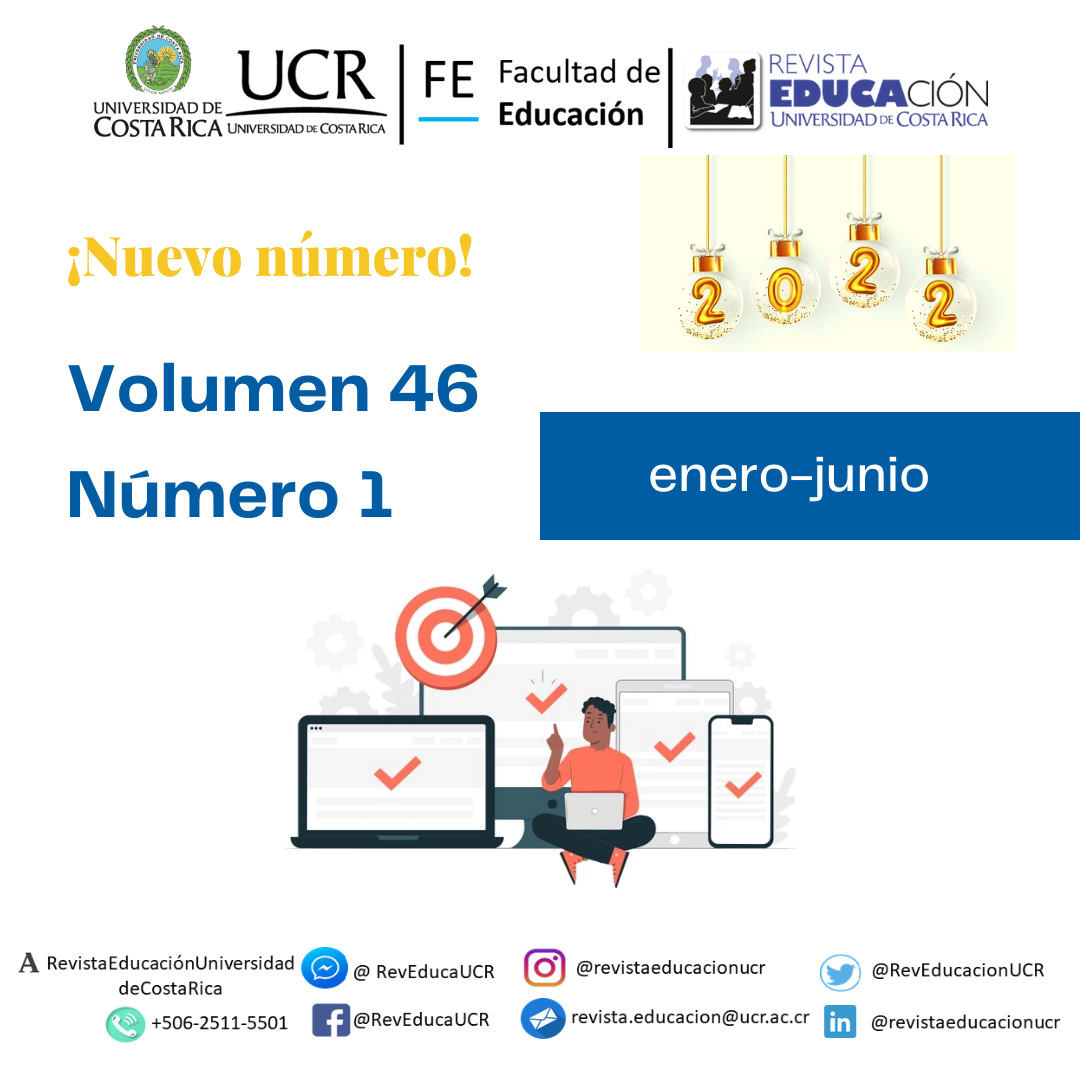Abstract
A qualitative study was conducted to determine factors that impacted family coexistence. The study used a microethnographic design (Creswell, 2005) to examined aspects that did not benefit coexistence among a group of fifth grade students in Central Mexico and their parents. Data was collected through interviews, systematic and participant observation, a survey, which included open questions both for parents and students, a game card and a field diary. The data obtained was analyzed through direct and axial coding which included parent-child coexistence as a unit of analysis according to five categories arising from an inductive approach. The study is based on the sociocultural theory of Vygotsky (1933, cited in Meece, 2001) on learning through interaction, Byutendijik´s (1935) theory of child dynamics and the energy surplus theory by Herbert Spencer (1855, the latter cited in Gallardo-López and Gallardo-Vázquez, 2018). Use of traditional games as a pedagogical resource during P.E. class, served to strenghten the bond between parents and their children. It also promoted greater family interaction and energy expenditure, particularly among preteenagers. Various traditional Mexican games were used in the study, concluding with a fair called Games Played by My Grandfather. Some of the factors that were found to negatively impact the coexistence of the family group studied include poor communication, limited use of free time, indifference to learning, Parent responsiblities at work and excessive use of electronic devices.
References
Cómo citar
Coyotecatl-Xochimitl, L. M. y Murrieta-Ortega, R. (2022). Factores que afectan la convivencia familiar: análisis micro etnográfico a través de juegos tradicionales en un grupo social en México. Revista Educación, 46(1). http://doi.org/ 10.15517/revedu.v46i1.43829
Referencias
Álvarez-Gayou, J.L. (2003). Cómo hacer investigación cualitativa: fundamentos y metodología. Paidós.
Bowlby, J. (1986). Vínculos afectivos. Formación, desarrollo y pérdida. Morata.
Creswell, J. (2005). Educational Research: Planning, Conducting, and Evaluating Quantitative and Qualitative Research. Internacional edition.
De León, B. (2011). La relación familia y su repercusión en la autonomía y responsabilidad de los niños. INDE.
Desarrollo Integral de la Familia [DIF]. (2020). Sistema Estatal DIF. Gobierno de Puebla. http://difestatal.puebla.gob.mx/
Gallardo-López, J. A. y Gallardo-Vázquez, P. (2018). Teorías del juego como recurso educativo [Conferencia]. IV Congreso Virtual Internacional sobre Innovación Pedagógica y Praxis Educativa. https://rio.upo.es/xmlui/handle/10433/6824
Hernández, M. A. y Carrión, E. (2019). Formación inicial de los maestros de educación infantil y las conductas disruptivas de la convivencia escolar [Conferencia]. IV Congreso internacional sobre la educación en el Siglo XXI. https://www.eumed.net/actas/19/educacion/1-formacion-inicial-de-los-maestros.pdf
Hernández, R., Fernández, C. y Baptista, P. (2014). Metodología de la investigación. (6ta edición). McGraw Hill.
Lillo, J. y Leiva, V. (2012). Importancia de la familia para la convivencia escolar. Universidad del Bio-Bio. https://licentiare.wordpress.com/2012/01/18/importancia-de-la-familia-para-la-convivencia-escolar/
Loizaga, F. (2011). Parentalidad positiva. Las bases de la construcción de la persona. Revista Educación Social, (49), 70-88. https://www.raco.cat/index.php/EducacioSocial/article/view/250179
Megías, E. y Elzo, J. (2006). Jóvenes, valores y drogas. EDIS. https://www.fad.es/wp-content/uploads/2019/05/valores06.pdf
Massoi, I., Dorio, I. y Sabariego, M. (2009). Estrategias de recogida y análisis de la información. En R., Bisquerra. Metodología de la investigación educativa (pp. 229-365). Editorial La Muralla.
McMillan, J. y Schumacher, S. (2011). Investigación educativa. Edición Pearson educación.
Meece, J. (2001). Desarrollo del niño y del adolescente. SEP/ULTRA
Morena, M. (2008). Generación tras generación, recobran los juegos tradicionales. Revista en Ciencias del Movimiento Humano y Salud, 5(1) 1-8. https://www.redalyc.org/pdf/2370/237017527002.pdf
Murillo, E. M. (2009). Estrategias para la integración de las familias en el mejoramiento de los aprendizajes escolares [Tesis doctoral]. Universidad Nacional de Educación a Distancia. http://repositorio.minedu.gob.pe/handle/20.500.12799/1830
Ramírez-García, A., González-Fernández, N. y Salcines-Talledo, I. (2018). Competencias parentales positivas y Smartphones. Diagnóstico en el contexto familiar. Revista Mediterránea de Comunicación/Mediterranean Journal of Communication, 9(2), 137-157. https://rua.ua.es/dspace/bitstream/10045/76872/1/ReMedCom_09_02_28.pdf
Revista Don Quijote. (2020). Juegos tradicionales de México. https://www.donquijote.org/es/cultura-mexicana/tradiciones/juegos/
Rodrigo, M. J. (2015). Manual práctico de parentalidad positiva. Editores Madrid Síntesis. https://dialnet.unirioja.es/servlet/libro?codigo=570396
Rodríguez, G., Gil, J. y García, E. (1999). Metodología de la investigación cualitativa. (2da edición). Ediciones Aljibe.
Seligman, M. (2017). La auténtica felicidad. Ediciones B.
Secretaría de Educación Pública [SEP]. (2006). Programas de Educación Física. SEP.
Secretaría de Educación Pública [SEP]. (2011). Programas de Educación Física. SEP.
Vangelisti, A. L. (2004). Handbook of family communication. Lawrence Erlbaum. https://pdfs.semanticscholar.org/4688/10659fbb4a29552a97e051f581739f190b34.pdf







